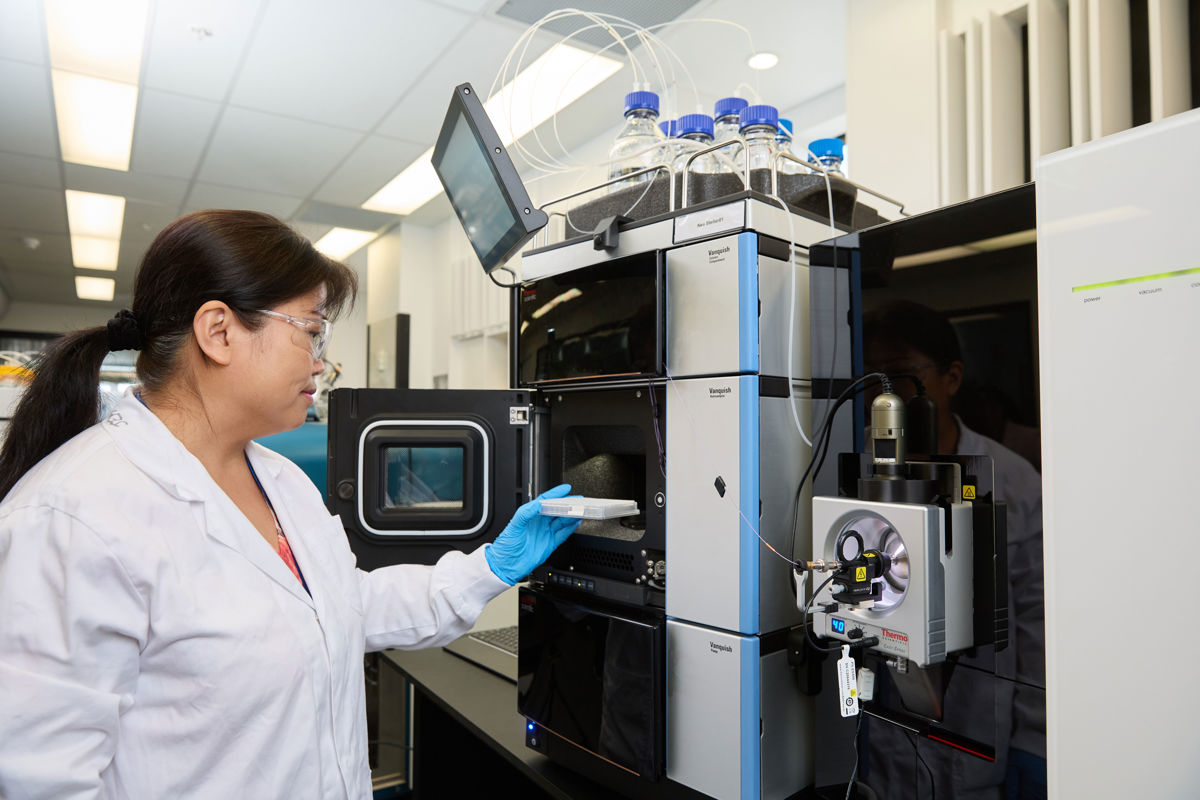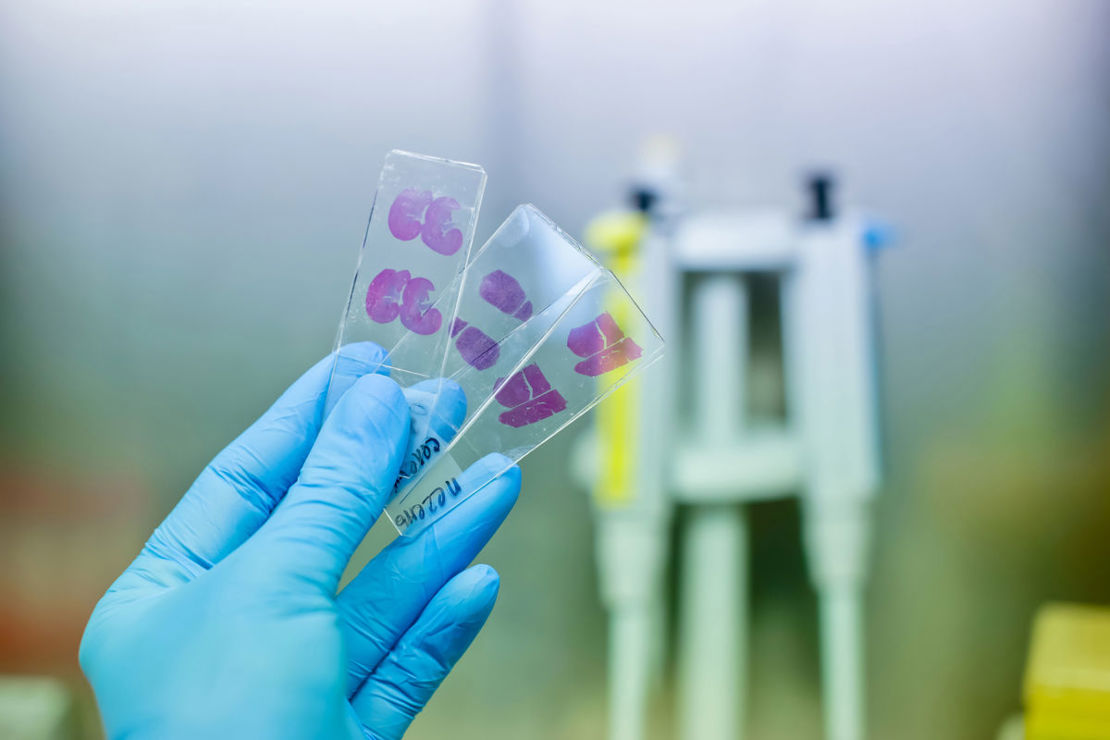Children's Medical Research Institute (CMRI) has more than 180 scientists working on world-leading research in four principal areas: Cancer, Neurobiology, Embryology and Gene Therapy.
Our aim is to accelerate research into children’s genetic diseases, birth defects, and childhood cancer to find better treatments and cures for these devastating conditions.
HOW WE'RE FIGHTING KIDS' CANCER
One of the most significant differences between cancer cells and normal cells is that cancer cells keep on multiplying relentlessly without any limit, whereas normal cells only multiply when needed and within fixed limits.
This difference is one area where we have chosen to focus our attention, as it has the potential to provide an answer to one of the most problematic issues in cancer treatment – how to kill cancer cells without harming healthy normal cells.
Many children suffer serious side effects, sometimes lifelong, because of the damage done to healthy cells during cancer treatment, so understanding how to target the cancer cells specifically is vital.
PARTNERING TO SAVE LIVES
Our ProCan lab is tackling childhood cancer in a new way that has never previously been attempted anywhere in the world on this scale.
This international research project is located at Children's Medical Research Institute (CMRI) in Sydney Australia. It was established with a $10 million grant from the Australian Cancer Research Foundation (ACRF) and has received subsequent funding from government, charitable organisations, and members of the community.
Leading cancer researchers, hospitals, universities, and other institutes throughout Australia and around the world are sending tens of thousands of samples of all types of cancer to Children’s Medical Research Institute to be analysed by the ProCan team.
Using advanced data science and software engineering they have developed a system that will one day be used by clinicians to choose the best treatment for an individual’s specific cancer, based on the proteins in the cancer. This means that time won’t be lost on treatments that won’t work for their cancer. This is personalised medicine at its best.
 CMRI CANCER RESEARCH MAJOR ACHIEVEMENTS:
CMRI CANCER RESEARCH MAJOR ACHIEVEMENTS:
2025 CMRI opens new lab that is using data science to help better diagnose and treat the most difficult and high-risk childhood cancers based on the cancers’ protein signatures.
2025 Cancer researchers at CMRI discover why cells die in different ways during radiotherapy which will improve radiation treatment and increase cure rates.
2024 CMRI researchers lead an international collaboration that shows how it is possible to train AI models to understand how cancer cells behave.
2024 CMRI researcher receives an award for his work to improve cancer survival rates using immunotherapy.
2023 NSW State Government Department of Health stated that ProCan’s database could save billions in healthcare costs.
2023 CMRI established an additional cancer lab, called ‘Nuclear Dynamics’ which is led by Dr Noa Lamm-Shalem whose aim is to better understand how cancers become resistant to chemotherapy and identify new vulnerabilities to target with new treatments.
2023 Dr Liz Conelly, a medical oncologist in CMRI’s ProCan team, has surveyed all available information about using proteomics to analyse sarcomas—difficult to treat cancers affecting children—and has outlined the way forward to make this useful in the clinic.
2022 Project launched by Dr Samantha Ginn of at CMRI to develop gene therapy treatments for Neurofibromatosis type 1 & 2, which causes nerve-associated tumours.
2022 ProCan completed the world’s largest database for predicting cancer treatment response based on proteins in cancer cell lines, with a panel of 949 cancer cell lines representing every type of cancer analysed.
2021 The ProCan team is a finalist in the 2021 Research Australia Health and Medical Research Awards for Data Innovation.
2020 ProCan achieved a world-first by developing a technology that could reliably analyse the proteins in cancer samples on a scale never seen before. The results were published in the prestigious scientific journal Nature Communications.
2020 A team of Australian scientists, including CMRI’s Prof Phil Robinson, became the first in the world to discover a way to target leukaemic cancer cells that are able to “hide’’ from chemotherapy and cause the cancer to relapse. Targeting these cells has the potential to cure leukaemias.
2019 ProCan was the first proteomics program in the world to analyse the proteomes of 10,000 human cancers.
2018 CMRI’s A/Prof Tony Cesare mde a ground-breaking discovery around regulation of telomere loop structure, which has major implications for conditions ranging from cancer to aging and heart disease.
2016 ProCan was established with a $10 million grant from the Australian Cancer Research Foundation (ACRF). ProCan is a world-first initiative developed by Professors Phil Robinson and Roger Reddel which launched in September 2016.
2015 CMRI discovered that cancer cells which switch on Alternative Lengthening of Telomeres (ALT) by losing ATRX gene function are much more fragile than normal cells when exposed to various forms of stress. We are using this knowledge to design treatments that will kill ALT-positive cancers with minimal side effects on normal cells.
2014 CMRI identified a gene that causes inherited bone marrow failure and uncovered a key anti-cancer target for ALT cancers - some of the most aggressive types.
2013 CMRI demonstrated that ALT has a normal counterpart in cells and developed a new model system for studying the ALT mechanism.
2012 Our scientists were involved in an international study identifying key genetic change (loss of ATP-dependent helicase) in ALT.
2011 We licensed C-circle assay for research use as a test for ALT cancers, helping identify the disease in kids easier and earlier.
2009 Our scientists developed C-circle assay for measuring ALT activity in cancer and discovered a telomere trimming mechanism that could one day be exploited to target and kill cancer cells.
2007 We were the first in the world to identify composition of active telomerase enzyme complex in human cells.
2000 CMRI demonstrated that ALT involves DNA recombination, becoming the first in the world to show this underlying mechanism.
1999 Our scientists found a diagnostic marker for ALT, called APBs, and also showed that unknown factors in normal cells can repress ALT cancers.
1995 We discovered ALT mechanism of telomere maintenance in cancer, which created an entirely new field of research.
For more information on CMRI, visit www.cmrijeansforgenes.org.au.

